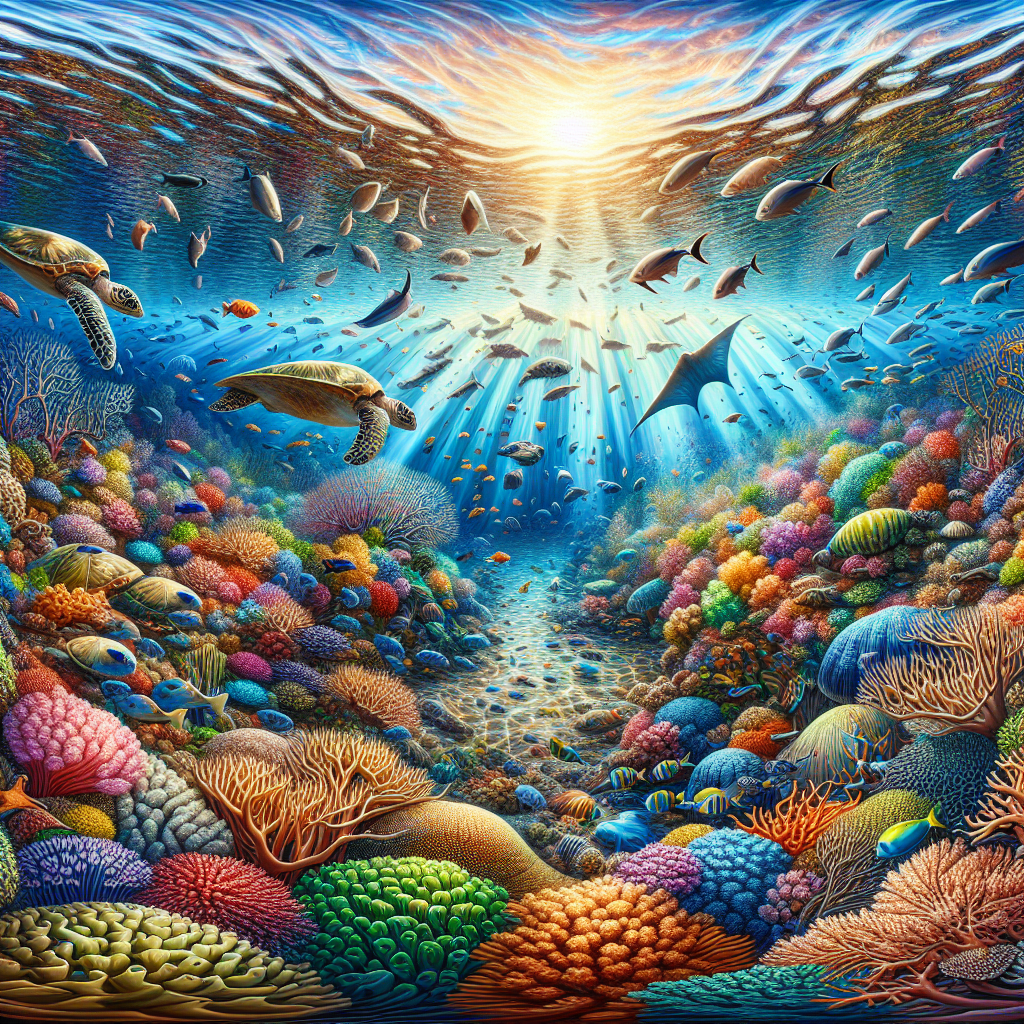Marine Biology: Unveiling the Underwater Secrets That Could Save Our Planet

When we think about the natural world, our minds often drift to sprawling forests or expansive deserts. Yet, over 70% of our planet is covered by oceans, and within those mysterious depths lies an incredible treasure trove of life. Marine biology is not just a study of fish and corals; it’s a window into the health of our planet and a key player in our fight against climate change.
The Importance of Marine Life
Marine organisms, from the tiniest phytoplankton to the largest whales, play a crucial role in maintaining Earth's health. Interestingly, phytoplankton alone produces more than half of the oxygen we breathe, and they absorb a significant amount of carbon dioxide—an important antithesis to global warming. Thus, the health of our oceans directly correlates with our survival.
The Wonders of Biodiversity Under the Waves
Diving into the world of marine biology reveals a breathtaking array of biodiversity. Scientists estimate that over 230,000 marine species have been identified so far, but many believe that millions more remain undiscovered. Coral reefs, often called the "rainforests of the sea," support around 25% of all marine species despite covering only 0.1% of the ocean floor. This staggering statistic highlights not only the richness of marine life but the fragility of these ecosystems, which are currently under threat from climate change, pollution, and overfishing.
Conservation: Why We Can't Afford to Ignore the Oceans
Unfortunately, our oceans face unprecedented challenges. Research shows that approximately 90% of large fish populations are now gone, and many marine habitats are quickly diminishing. Conservation efforts are crucial if we want to protect these vital ecosystems. Innovative programs, such as marine protected areas (MPAs), aim to restore biodiversity by restricting human activities in vulnerable regions. Studies have shown that these areas can lead to a recovery of fish populations and overall ecosystem health.
The Future of Marine Biology: Technology to the Rescue
With the dawn of new technologies, marine biology is entering an exciting era. Underwater drones, remote sensing, and genetic sampling are some of the tools being used to monitor and study marine life like never before. These advances allow scientists to collect data that were previously unattainable, enabling better-informed conservation policies. For instance, artificial intelligence is now being applied to analyze vast amounts of data, helping to identify patterns in ocean health that can guide conservation efforts.
How You Can Make a Difference
There’s a place for everyone in marine conservation. Simple actions, like reducing plastic use, choosing sustainable seafood, and supporting ocean-friendly policies, can significantly impact marine health. You don’t need to be a scientist to contribute; awareness and education play a huge role. By understanding the challenges facing our oceans, you can inspire others to advocate for change.
As we continue to unravel the mysteries of the deep, it becomes clearer that nurturing our oceans is not merely a specialized interest; it’s a necessity for the wellbeing of our planet and future generations. Marine biology opens a door to understanding how intertwined we are with the waters that cover our Earth, and it's vital that we step through it with care.